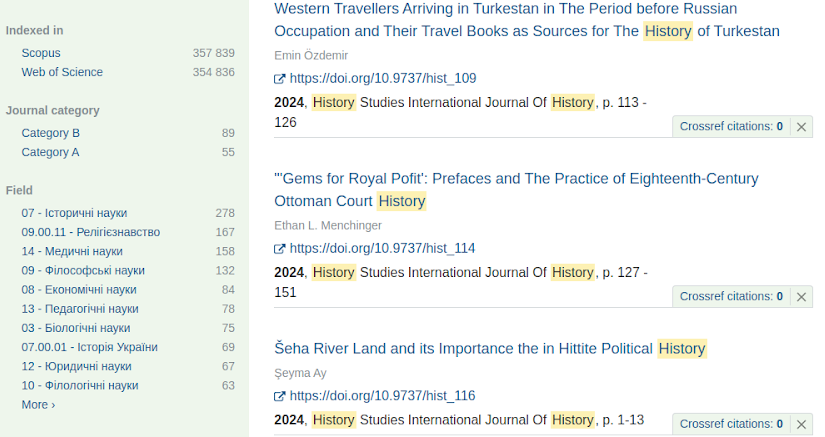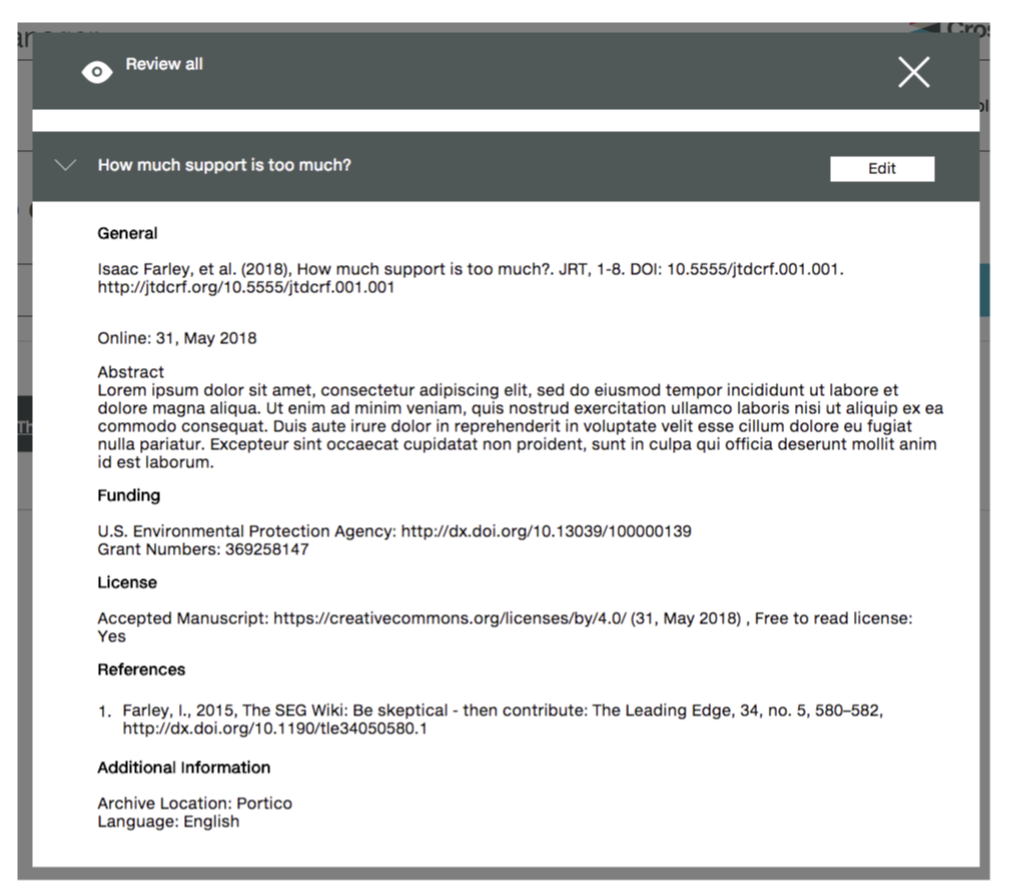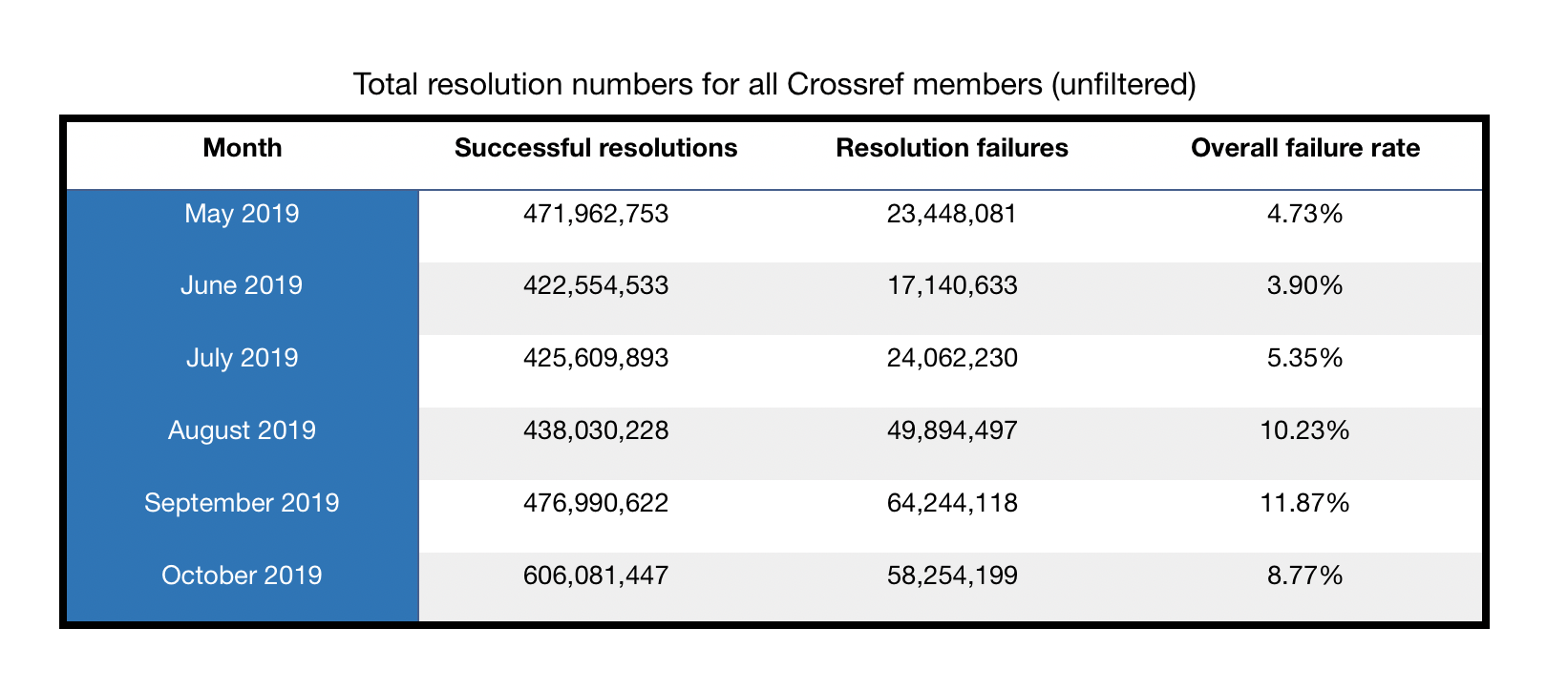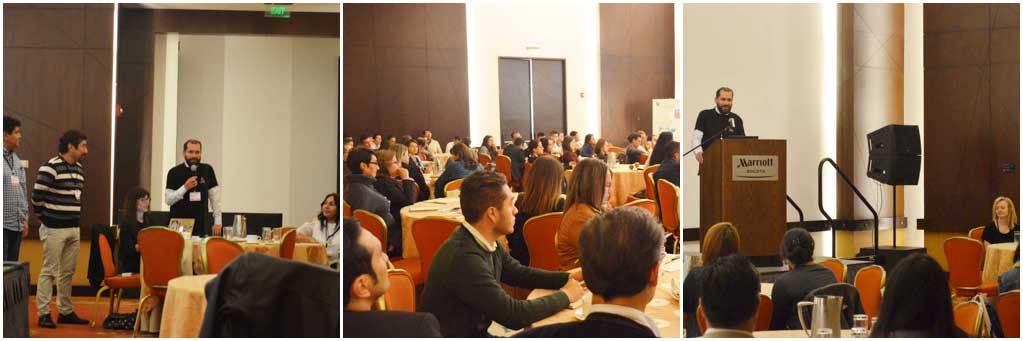
Over the past few years, I’ve been really interested in seeing the breadth of uses that the research community is finding for the Crossref REST API.

Over the past few years, I’ve been really interested in seeing the breadth of uses that the research community is finding for the Crossref REST API.
It seems like only yesterday… On January 19th, 2000 a new not-for-profit organisation was registered in New York State.

It’s been a year since Metadata Manager was first launched in Beta. We’ve received a lot of helpful feedback from many Crossref members who made the switch from Web Deposit Form to Metadata Manager for their journal article registrations.

Isaac Farley, technical support manager, and Jon Stark, software developer, provide a glimpse into the history and current state of our popular monthly resolution reports. They invite you, our members, to help us understand how you use these reports.

English version –– Información en español In this post, Arley Soto shares some experiences about his work as a Crossref ambassador in Latin America.
I’m happy to announce that Lucy Ofiesh has joined Crossref as our new Director of Finance and Operations.
The first version of our metadata input schema (a DTD, to be specific) was created in 1999 to capture basic bibliographic information and facilitate matching DOIs to citations.
Crossref strives for balance. Different people have always wanted different things from us and, since our founding, we have brought together diverse organisations to have discussions—sometimes contentious—to agree on how to help make scholarly communications better.
Bibliographic references in scientific papers are the end result of a process typically composed of: finding the right document to cite, obtaining its metadata, and formatting the metadata using a specific citation style. This end result, however, does not preserve the information about the citation style used to generate it.
TL;DR On Wednesday, October 2nd, 2019 we discovered that we had accidentally pushed the main Crossref system as part of a docker image into a developer’s account on Docker Hub.
We’ve all been subject to floods of conference invitations, it can be difficult to sort the relevant from the not-relevant or (even worse) sketchy conferences competing for our attention. In 2017, DataCite and Crossref started a working group to investigate creating identifiers for conferences and projects.